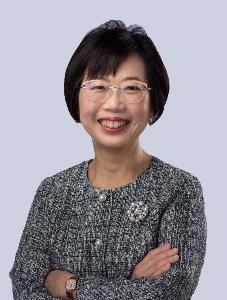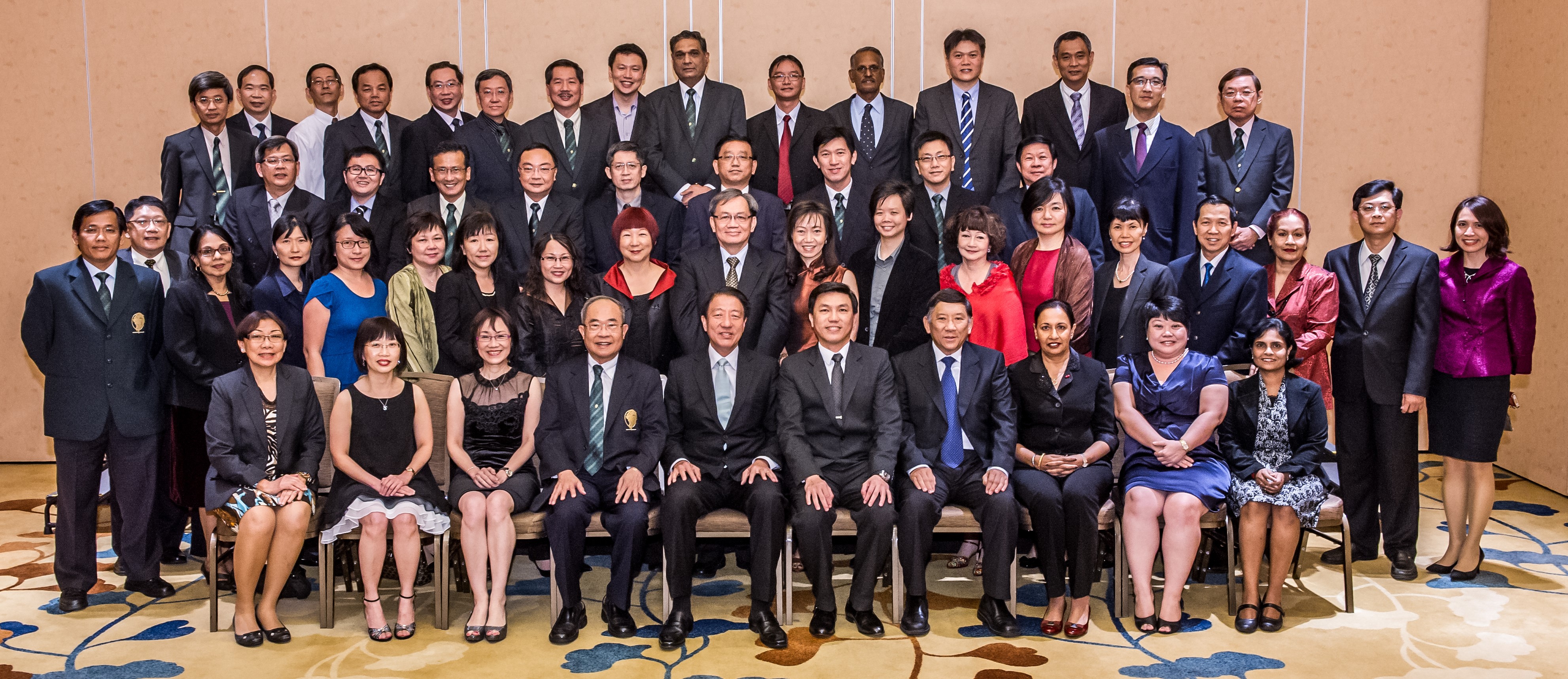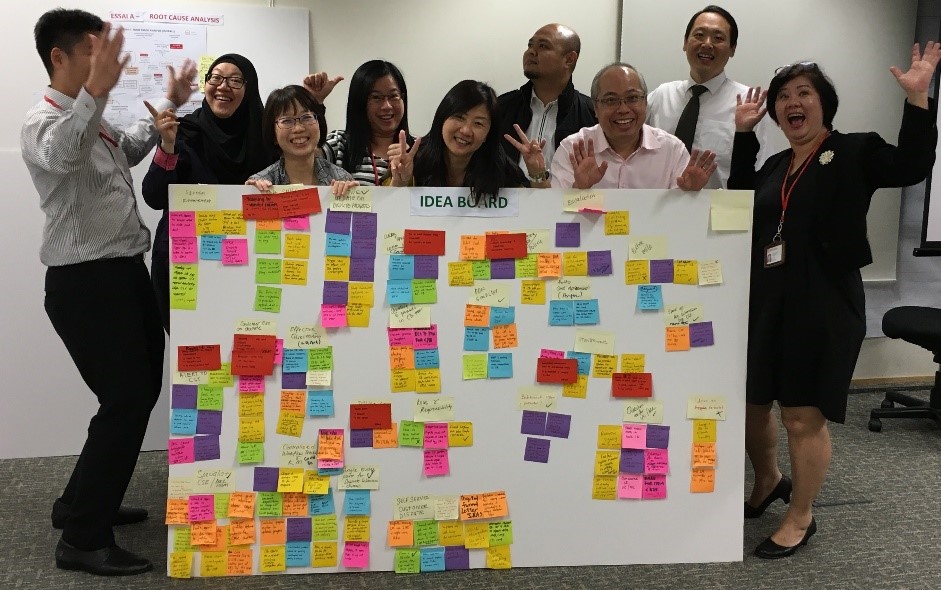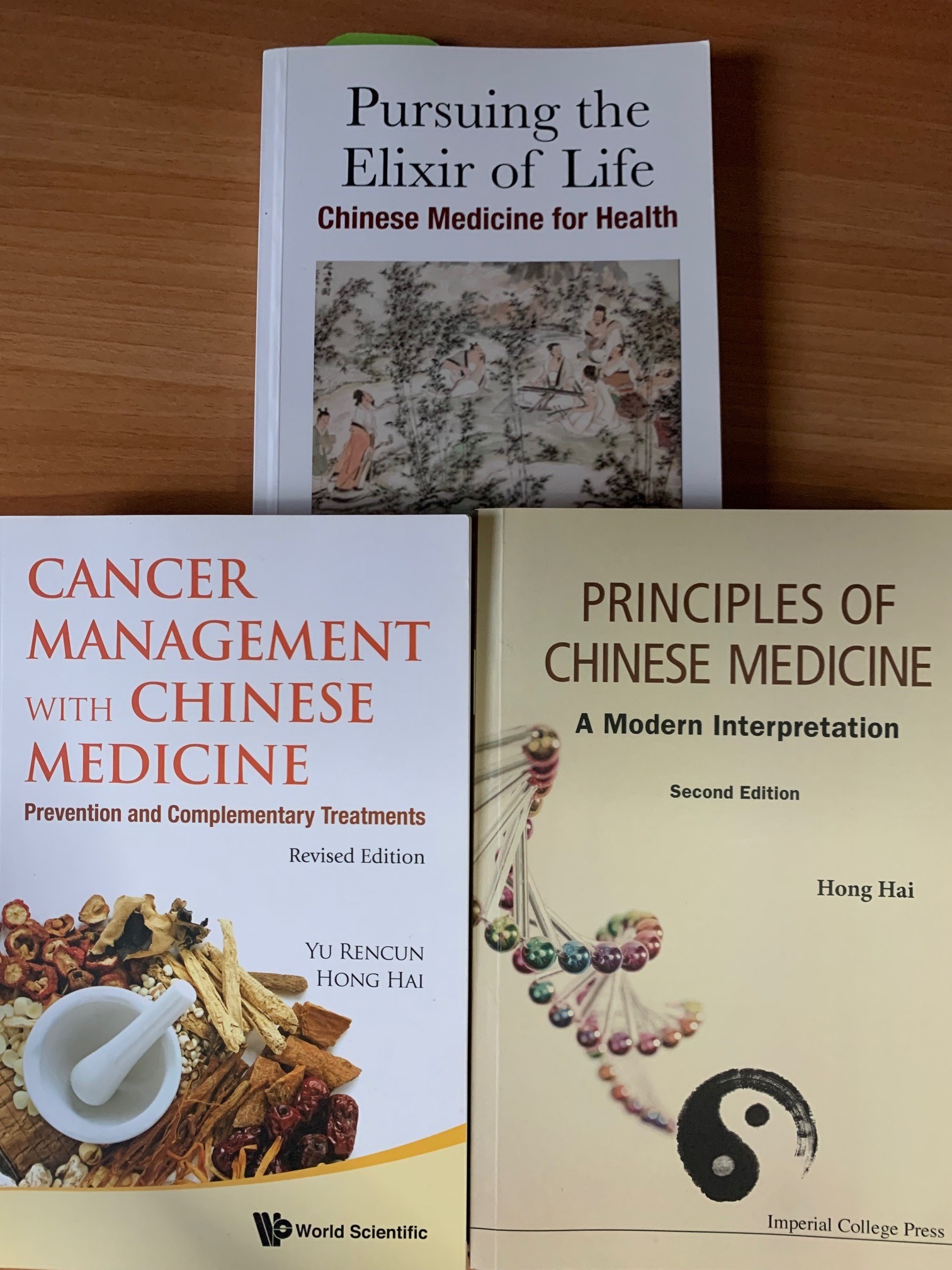Creating real organisational impact through digital transformation has been at the heart of all she does. Beyond what drives her in the professional realm, in this issue, Yuen Wah also shares more about her pursuit of mindfulness through meditative methods, energy healing and Chinese medicine therapy.
1. Hi Yuen Wah! Please tell us about your professional background.
 Simply put, I’m a software engineer by training; I’m a consultant, business leader, coach and assessor by practice; and I’m a facilitator at heart.
Simply put, I’m a software engineer by training; I’m a consultant, business leader, coach and assessor by practice; and I’m a facilitator at heart.
I was involved in building expert systems as a young software engineer long time ago. Subsequently, I made a switch into consulting to deliver BPR consultancy services for major public sector agencies. The classic case study on NLB’s transformation was one of them. During the dot-com time, I joined OCBC Bank as a business leader to create and run e-business startups. In mid-2000s, I set up the Centre for Experience Design Innovation (CEDI) for OCBC Consumer Banking where we instituted customer experience design, a first in the banking industry. By late-2000s, I took on Bank Group-level responsibility to drive impactful and ambitious digital transformation initiatives that often involved cross-geography, cross-entity and/or cross-functional teams. These strategic engagements have afforded me extensive exposure in fostering collaboration across diverse groups and honing my facilitative leadership skills while practicing my patience too!
My professional network extends into the Business Excellence community helmed by Enterprise Singapore where I contributed as a Lead Assessor for Singapore Quality Award (SQA). My professional engagement with the community of facilitators through the International Association of Facilitators (IAF) involves workshop design & public facilitation for NPOs’ Board leadership teams. I am truly blessed with a career journey that is filled with many new learning opportunities.

Business Excellence Assessors with Deputy Prime Minister (Yuen Wah at front row, 2nd from left)
2. Share more about the modules/courses which you teach at NUS-ISS.
As I have a bias toward application orientation, the first module that I am going to direct is the Digital Leadership Capstone Project as part of the Master of Technology in Digital Leadership, which in itself is a 11-month long module for participants to work on real-world problems. I set high expectations for our participants and I hope to provide them with practical guidance on what it takes to be a digital business leader in driving and transforming businesses and organisations.
Once I learn the ropes in developing robust assessment rubrics from our Learning Excellence team, this module should be all set. I am looking forward to kick-starting this module with a Capstone Briefing in October 2022.
3. Why did you choose to teach at NUS-ISS?
As the saying goes, opportunity knocks when you are ready and it is up to us to seize it!
I am naturally drawn to the Higher Education sector. Since late-1990s, I have had the opportunity to be in the adult education business. I was invited by Institute of Management Consultants to conduct BPR courses for aspiring consultants over a period of 8 years, with multiple runs per year. I then served as adjunct lecturer for a MSc programme with NUS Faculty of Engineering for another 13 years.
Stepping into the role of a Programme Chief and concurrently holding a portfolio in Corporate Services as Deputy Director is going to be a unique experience for me. It is my desire to bring greater value and impact to NUS-ISS beyond teaching, by working alongside staff members from both teaching faculty and the various functions in Corporate Services. Together, we can cultivate NUS-ISS with role model qualities for digital transformation.
4. What do you enjoy most about your work?
I enjoy being engaged in activities that play to my greatest strengths at work. I appreciate creative problem solving and love to be exposed to new experiences and information. I feel invigorated when I have the freedom to explore possibilities. I get others energised by working as a team to challenge status quo, push boundaries and accomplish goals. I believe that best leaders must be effective facilitators with the ability to hold space and make it easy for people to collaborate.

5. How do you keep up with the industry?
I keep abreast of the latest happenings and trends on a few select areas. They are the emerging digital trends, business excellence and practices in facilitation & coaching.
I subscribe to web journals and industry newsletters such as MIT Sloan, BCG, Deloitte Insights, PEX Network, HRM Asia, etc. I take advantage of complimentary events and webinars, as well as webcasts and podcasts. I listen to podcasts on coaching from Gallup and coaching.com. At times, I tune in to social media and communities of practice including professional chatgroups on telegram.
6. What are your favourite activities when you are not working?
Outside of my day job, I engage in social volunteer work. I am a regular volunteer at AMK Community Hospital since 2013. There, I engage elderly patients through activities at therapy sessions. In addition, I participate in monthly food distribution to the needy residents; I offer ‘energy bath’ to elderly residents to ease their physical and emotional discomfort. I appreciate the learning moments offered through such engagements. It pays to be a volunteer as the networking and life experience gained are highly enriching and most rewarding.
Before the covid-19 pandemic, I love to travel for business and leisure to different places and for spiritual retreats in India. Several of my trips brought me to places where I never would have thought of visiting. The two places I fondly recall: the trip to Nadi, Fiji Islands in 2008 where Fijian men wear Sulu (skirts) and Fijian greeting to welcome guests is Bula! , and the trip to Islamabad, Pakistan where I got there soon after the deadly protest incident in late 2014. I love the wonderful first-hand experience in observing how people live their lives in different parts of the world!
7.Tell us something about yourself that very few people know.
As I gain deeper appreciation on the need to balance materialism with spirituality in life, I am very much interested in spiritual practices in recent years. It involves physical and breathing exercises, meditation as well as studies on theosophical teaching.
During the circuit breaker period, I experienced the power of regular meditation. It calms the mind and allows me to experience clarity in the midst of external uncertainty.
And here’s my small collection of Theosophy books that I have accumulated over the years. ‘Theosophy’ refers to divine knowledge or science. ‘Theos’ means a god in Greek. I enjoy reading about the scheme of evolution in our solar system, the evolution of the human kingdom, the nature of souls and energy bodies. These teachings serve as a guide for me to know my true nature.

Besides energy healing, I am also intrigued by other healing modalities including Chinese medicine therapy. TCM concepts such as “flow, balance and harmony” and “food as medicine” resonate with me. Flow in Chinese medicine means qi and blood. “When there is no flow, there is pain; when there is no pain, there is flow”. I apply my basic knowledge in Chinese herbs and their therapeutic effects by preparing a variety of herbal tonic soups for my family to regulate qi and tonify yin, as necessary.
